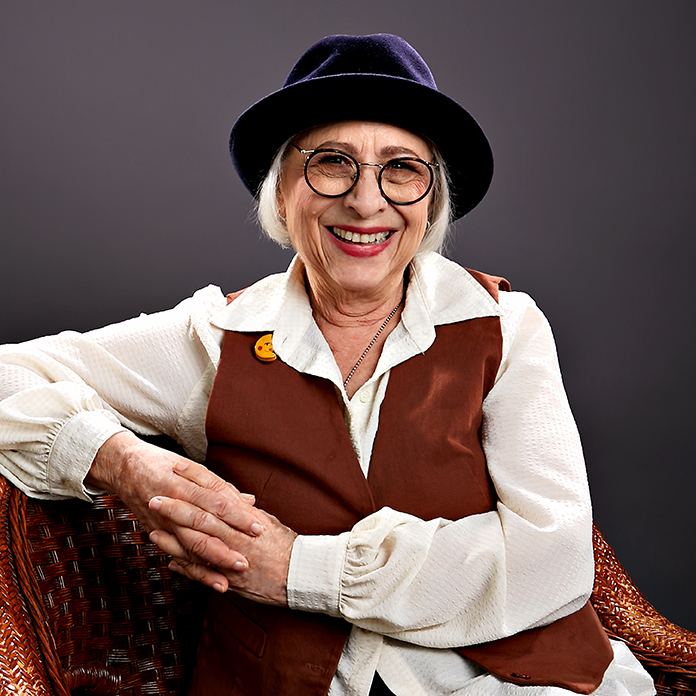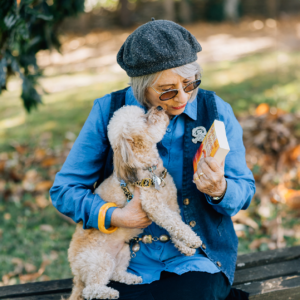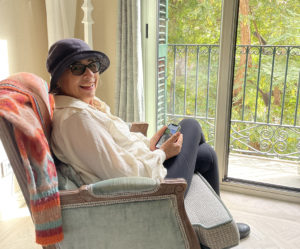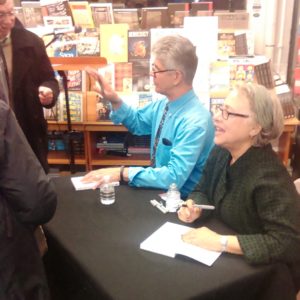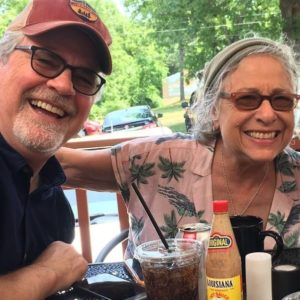Ask me about the meaning of life, and I’ll have tons to say. Ask me if I’ve come to terms with mortality, and you’ll get a thoughtful answer complete with sub-texts. But the other day, someone asked me something that left me speechless. “Are you happy?”
I wish I could respond as quickly and affirmatively as do many of my 70 plus year old peers, who report not only to me personally—but in research studies undertaken by serious gerontologists–that they’ve never been happier.
It seems very un-American somehow, to resist setting happiness as the driver that keeps the machinery rolling let alone to confess that one is not sure if one is “happy” or not. After all, just about every commercial message that crosses our paths promises that if you just consume this or that, you’ll win the prize of never-ending happiness. And if you’ve missed the mark somehow, there’s a pill for that.
In refusing to check the right boxes on the surveys, I’d worry about myself in regards to all this, but for the fact that I am in such great company. In fact, when I apply the question “Are you happy?” to most of my favorite authors, none of us seem to have gotten the memo. For instance, there’s Jungian therapist and author Florida Scott-Maxwell, who wrote fifty years ago in her classic work on aging The Measure of My Days: “The ordeal of being true to your own inner way must stand high on the list of ordeals. It is like being in the power of someone you cannot reach, know, or move, but who never lets you go…It is not easy to be sure that being yourself is worth the trouble, but we do know it is our sacred duty…”
Does this sound happy to you? And yet engaging deeply with Florida through her words over the years, I have felt a growing sense of relief that here was someone who wrote less about happiness and more about what it means to be fully alive, a state she describes as “fierce with reality.” I feel the same way about Joan Chittister, James Hollis, Henry Nouwen, Mary Oliver and Thomas Merton, to name a few—all of whom, not coincidentally, have been or will be the authors of Conscious Aging Book Club selections. Which brings us to this month’s book and author, poet, memoirist and novelist May Sarton.
Our official selection is the journal she kept the year she turned 60, Journal of a Solitude, generally considered her best. But I have savored every one of journals, including Recovering, written after her mastectomy at 66; At Seventy and shortly thereafter After the Stroke written at 73 all the way up through her last journal At 82. Over the course of the year covered in Journal of a Solitude, she both struggles with and celebrates her independent life as a woman and writer and the challenges of enduring the particularly frigid New Hampshire winter of 1972-3, much of it with only her beloved pets and hot house plants as company.
When I first read Sarton 11 years ago, at exactly the same age she was when she wrote Journal of a Solitude, I found rejection of commonly-held notions of happiness a comforting rather than discomforting notion. Like Sarton—as a budding memoirist—I wanted to believe she was talking about me when she described one of her writer friends as “of the same breed of cat, responsive and sensitive close to the surface, willing to give ourselves away. Such people rarely lead happy lives, but they do lead lives of constant growth and change.”
Sarton and the writers I have tended to admire most have shown themselves willing to dive deep into the shadows in order to retrieve something they know to be somehow critically important. Moved by Robert Cole’s piece on Erik Erikson in the New Yorker Sarton writes: “’Not everyone can or will…give his specific fears and desires a chance to be of universal significance.’ To do this takes a curious combination of humility, excruciating honesty, and (there’s the rub) a sense of destiny or of identity. One must believe that private dilemmas are, if deeply examined, universal, and so, if expressed, have a human value beyond the private…”
Many of us who aspire to greatness experience this sense of destiny when we are younger, but to continue to cultivate the conviction that the truth of our inner lives is more important than happiness—whether or not one uses words, paint or mere being as one’s art-form—requires something more of us. As Sarton quotes Humphry Trevelyan on Goethe: “It seems that two qualities are necessary if a great artist is to remain creative to the end of a long life; he must on the one hand retain an abnormally keen awareness of life, he must never grow complacent, never be content with life, must always demand the impossible and when he cannot have it, must despair.”
Looking back over the last decade as it has unfolded, I observe that like Sarton, I have spent more than my fair share of time in the shadows, retrieving hard-won morsals to serve up in my increasingly personal and revealing books and blogs. Throughout, I have felt darkly affirmed by Sarton’s quote from Carl Jung that “The serious problems in life are never fully solved. If ever they should appear to be so it is a sure sign that something has been lost.”
But re-reading Journal of a Solitude now, I am asking what does it mean for my career—my aspiration that so long privileged greatness over happiness—to find myself at age 71 increasingly content?
I am many things today that I wasn’t even a couple of months let alone years ago. I am wiser, less liable to be bullied, more self-nurturing and generally apt to bound out the front door eager to experience whatever new adventures may come my way. I understand more about what it means to love and be loved, and how to tender compassion without strings attached. And yet, on any given day, I may also be devastated at some point, ecstatic at another; and the rest, I am often just doing, well, whatever. At my best, I suppose I am in that state for which I have so mightily striven over the years: Simply living in the present moment. But since the whole point of “being here now” is devoid of commentary or concern, there is quite simply no witness to render judgment—happy or sad.
So, it appears on one hand that Sarton and I both bridle at the notion of trying to fit the whole of our life experience into too small a box called “happiness”. However, I am now far less eager to join Sarton as she bolts towards the front lines of greatness—volunteering for despair and even suffering as a sign that one is especially serious about life.
While over the course of her sixtieth year she never got around to renouncing the value of despair, I believe that Sarton may yet have the beginning of an answer for me to the question ”Are you happy?” We find it not by turning to the last page of the journal of her sixtieth year, but 22 years of pages later to the very last words Sarton ever published in the very last journal of her fierce, long life At Eighty Two.
“An old woman living alone writes poems, cooks up a supper of asparagus on toast with hard-boiled eggs…I am surrounded by lovingkindness. How did it ever happen to this old raccoon!” With another change of the season upon her, feeling lucky, beloved and optimistic, so it is that May Sarton ends her journal-writing career on a note of hope and dare I say it, happiness.
Now it is my turn to find affirmation of a similarly brighter hue by trusting who I was 11 years ago, who I am now and who I am becoming. Time and life change us, if we let it. And eventually the work of the long, hard winter of solitude ends, emerging from the cold and the dark with unimaginable gifts.
So am I happy? To which I can now reply: “Not sure what I would call this thing that is my life. But I do know that I would not have it any other way.”
________________________
The Conscious Aging Book Club will be discussing May Sarton’s journals including Journal of a Solitude in the comment section below as well as in-person March 7 at 10:30 a.m. at Parnassus Books. If you will be in Nashville, please join us.
For a free subscription to Older, Wiser, Fiercer, click HERE
To subscribe to our sister site Fierce with Age: The Free Digest of Boomer Wisdom, Inspiration and Spirituality, click HERE
To learn about the Conscious Aging Book Club, click HERE
_________________________
TO START OR JOIN THE DISCUSSION ON THIS BLOG AND BOOK: You are encouraged to share your thoughts with me and our community at the bottom of this blog as it is posted below at CarolOrsborn.com.
